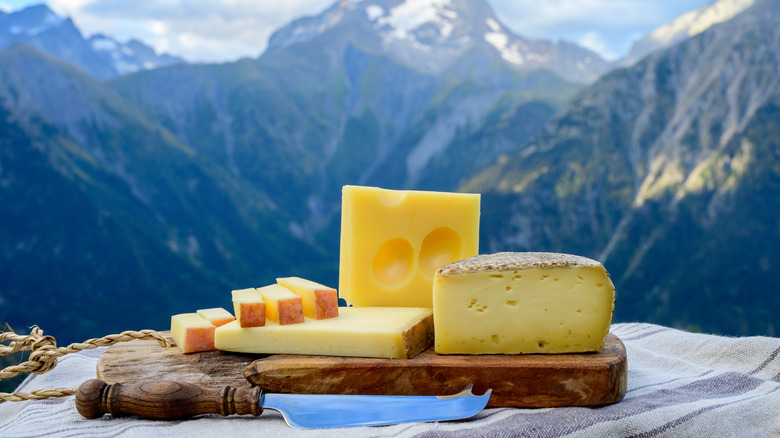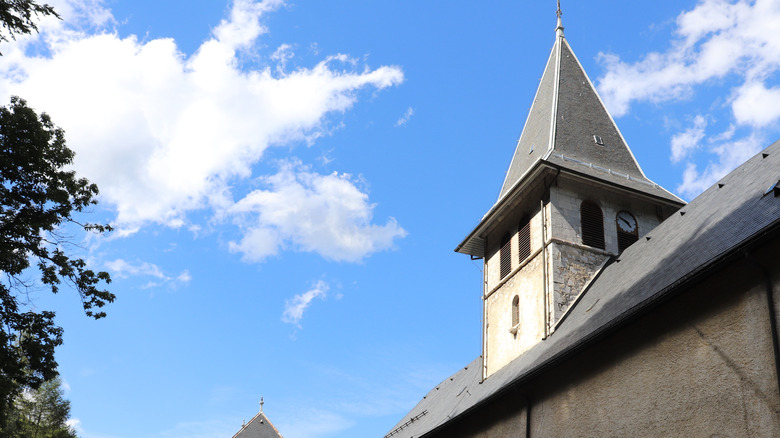The Fascinating French Monastery Powered By Cheese
High in the idyllically quiet and serene climates of the Bauges mountain range in the Savoie region of France, stands the impressively picturesque Abbaye N.-D. de Tamié, more colloquially known as Tamié Abbey (via France Voyage).
Built and founded in the 1130's, this monastery is remarkable not just for its age but also for its cheese-making residents. The Abbey is both the home and the center of operations for about 30 Trappist monks who process and create the Abbaye de Tamié cheese from the milk of nearby dairy farms, per the Order of Cistercians of the Strict Observance. According to Atlas Obscura, Abbaye de Tamié is widely known to be a unique and high-quality cheese, and has been particularly lauded for its notably nutty, fruity, and earthy undertones. It's sold throughout France, but is also available in other countries. Unfortunately for those in select countries like the United States, Abbaye de Tamié is made with unpasteurized milk, making it an illegal cheese. In order for it to be legally sold stateside, the cheese must be aged for at least 60 days.
Renewable cheese energy
The process of making cheese is a very involved one. It takes quite a bit of effort and produces a very particular amount of waste product, specifically large amounts of excess whey (via The Counter). Concerned with both the level of byproduct and the methods by which said byproduct was being disposed of, the Tamié Abbey in France decided to get a little greener and see if they couldn't put some of this waste to good use.
Atlas Obscura reports that in 2003, Tamié Abbey installed a methanation plant on the property which would allow them to take the excess whey and white water byproducts from the cheese-making process and convert a portion of it into methane gas, which is now used to power the Abbey's hot water system. And according to HowStuffWorks, Tamié Abbey's cheese-powered system has also inspired others to look into this wonderful new power source — in 2015, a "cheese-to-power plant" opened in the French town of Albertville, which has been able to provide enough energy for 1,500 people.

